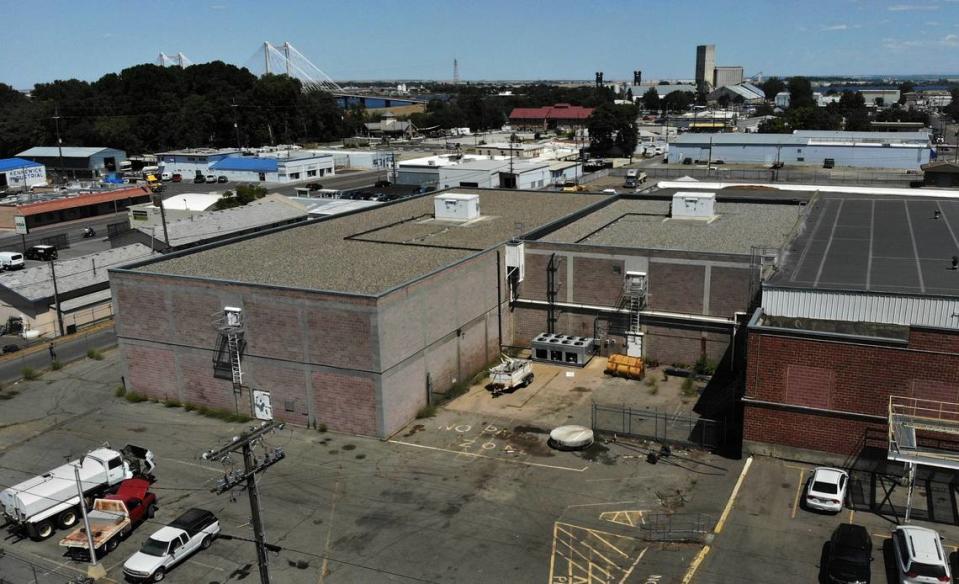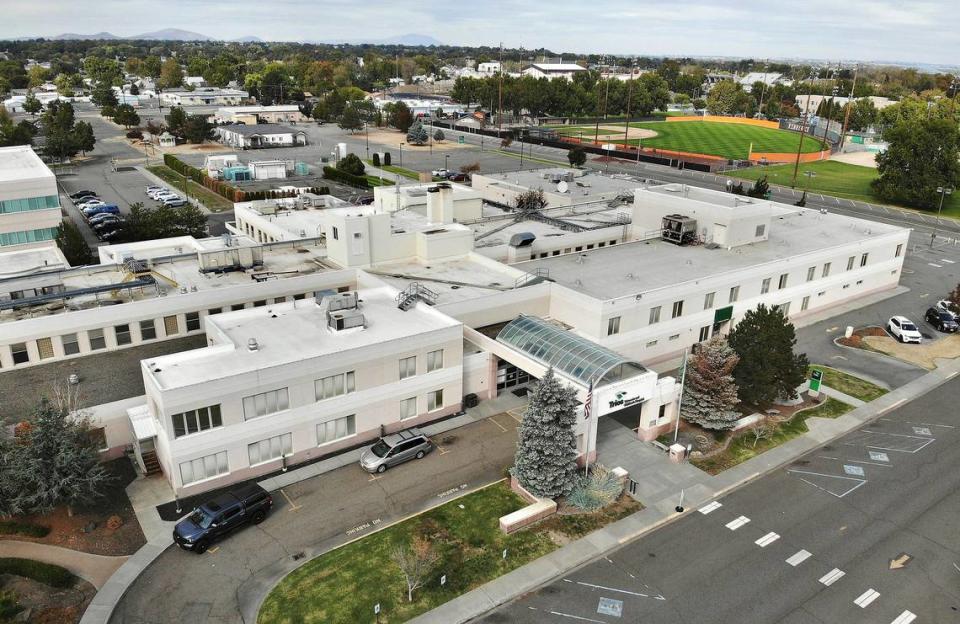1st Tri-Cities recovery center gets a name. Crisis teams, sobering center considered next
With work set to begin soon on the Tri-Cities’ first substance use and mental health recovery center, one key matter has been decided — what to call it.
The Benton Franklin Behavioral Health Advisory Committee have settled on a new name for the facility at its most recent meeting, after the working name was too closely related to several other area businesses earlier this year.
The committee wanted to find a name that would convey that this is a recovery center for everyone in the region.
What’s in a name?
Over the past month a subcommittee worked to narrow down nearly three dozen suggestions.
Some of the key criteria were a name that would be unambiguous, descriptive of their mission and conveys regionality. A decent acronym and how people would break it down into a shorthand name were also considered.
The top three choices were the Benton Franklin Recovery Center (BFRC), Columbia Valley Center for Recovery (CVCR) and Southeast Washington Recovery Center (SWRC).
Columbia Valley Center for Recovery was the clear winner. And for three committee members who did not rank it first, it was their second choice.
While the area is often called the Columbia Basin, committee members agreed that Columbia Valley elicited a stronger emotional response.
The term Columbia Valley is sometimes used interchangeably locally to describe the Tri-Cities portion of a much larger area along the Columbia River and its tributaries.
Michelle Gerber, who is a nonvoting member of the committee, said the “valley” term was more popular in the area by early farmers in the White Bluff and Hanford areas, before the Columbia Basin Irrigation Project helped bring a swell of new people to the area after World War II.

The term Columbia Valley is still used to describe the wine growing American Viticultural Area that encompasses all of the smaller local ones such as the Red Mountain AVA and Walla Walla AVA.
In choosing the term “Valley,” the committee is also broadcasting that this project is meant to help everyone in the region.
The next steps will likely include a branding campaign, and eventually new signs for the two buildings that will eventually make up the Columbia Valley Center for Recovery.
Progress toward opening
Benton County recently purchased the second building it was leasing for the project in the old Welch’s Juice plant for $5 million in order to save money and make the grant application process easier.
The old Kennewick General Hospital will be used for inpatient residential drug and alcohol treatment, while the Bruneau Avenue facility will be used for crisis stabilization, secure withdrawal and 23-hour observation.

Comprehensive Healthcare has been selected as the vendor to manage the facilities. They are hammering out the details of the contract, and expect to submit it to county commissioners soon.
Once that is in place, the committee will select a design-bid team that can start work immediately. They’ve already received proposals, so all that’s left before approving that contract is to see what Comprehensive recommends working on first, and what their needs are.
The benefit of the process is that they can prioritize which portions of the project to complete first, enabling them to open in stages if they need to. That contract could be awarded, with design beginning by the end of the month or in September and the buildout happening as the design process progresses.
The entire project is expected to take one to two years.
Crisis response
Meanwhile the committee also is exploring options to work as a “bridge” in the interim. One of the possibilities being explored is a crisis response team.
The committee is working with interested groups to figure out what a contract would look like for a team of mental health professionals that is able to respond to calls with police or EMTs seven days a week.
They’re also considering proposals for a 23-hour voluntary sobering center, which would allow people to come in to sober up in a safe place and give case managers the opportunity to offer them access to other services. This could largely be staffed by peers in recovery.
The difference between this 23-hour facility and the one included in the long-term plans is that it is completely voluntary and people can leave any time and check themselves in as often as they feel is necessary, while the other can be used for mandatory holds and has more licensing requirements.
Committee members have described similar voluntary facilities as having “living room” setups with recliners and peers in recovery on hand to talk to.
One of the major roadblocks for both proposals is the current lack of services in the area. The crisis response teams would not have a facility to refer people to until one of the recovery center projects opens, while the sobering center would not be able to address the days-long complications that can come from physical withdrawals.
United Family Center and Lourdes have both given the committee initial proposals. The UFC proposal would cost $1.6 million but would include more comprehensive care, and some of it could be billable to insurance or medicaid, while the Lourdes proposal would cost about $600,000 a year.
Lourdes has told the committee they could put the sobering center at its existing hospital in Pasco, which would help it open more quickly. Care beyond just sobering could then be managed by the hospital system until the recovery center is open.
The main goal with both programs is to create a diversion pathway for police to offer alternatives to just taking someone to jail, and to begin the process of getting someone connected to services they need to get long-term help.
If approved, the sobering center and crisis response teams could be up and running by early next year.
The exact build-out time will depend on the scale of services each is expected to provide and contract negotiations once vendors are selected.
The Benton Franklin Behavioral Health Committee includes local elected officials and county employees, mental health and addiction professionals, first responders and citizens.
They are responsible for stewarding a variety of funds earmarked for mental healthcare. Some of those funding sources include a .01% sales tax, opioid lawsuit settlement money and a variety of grants.

